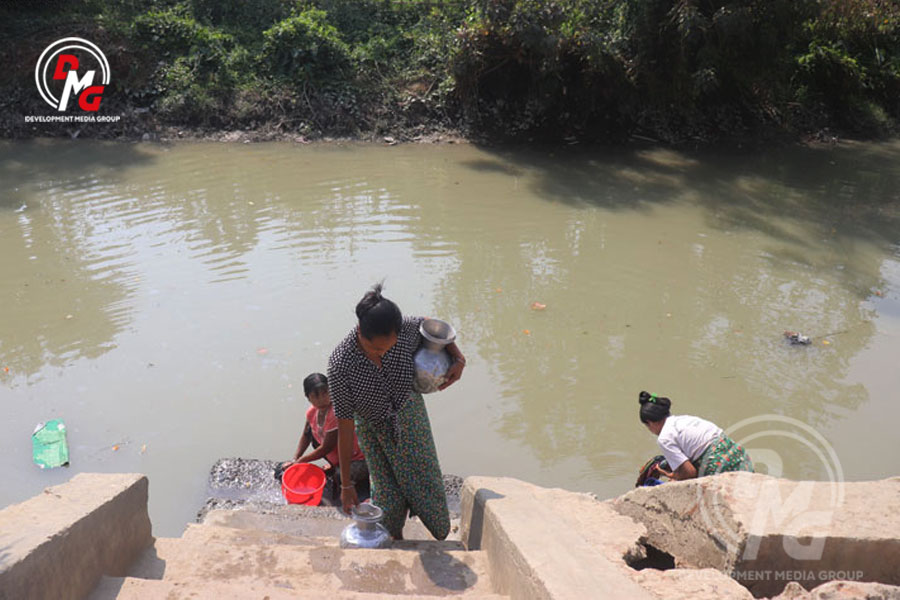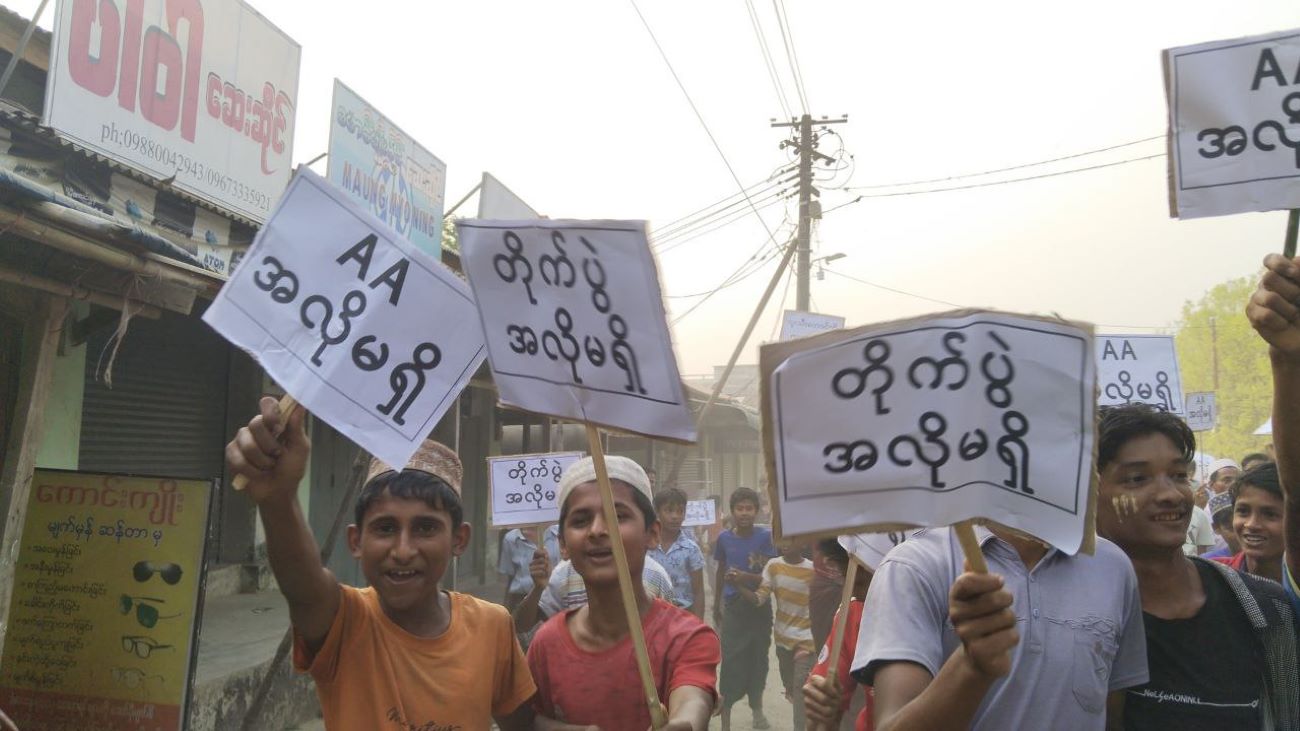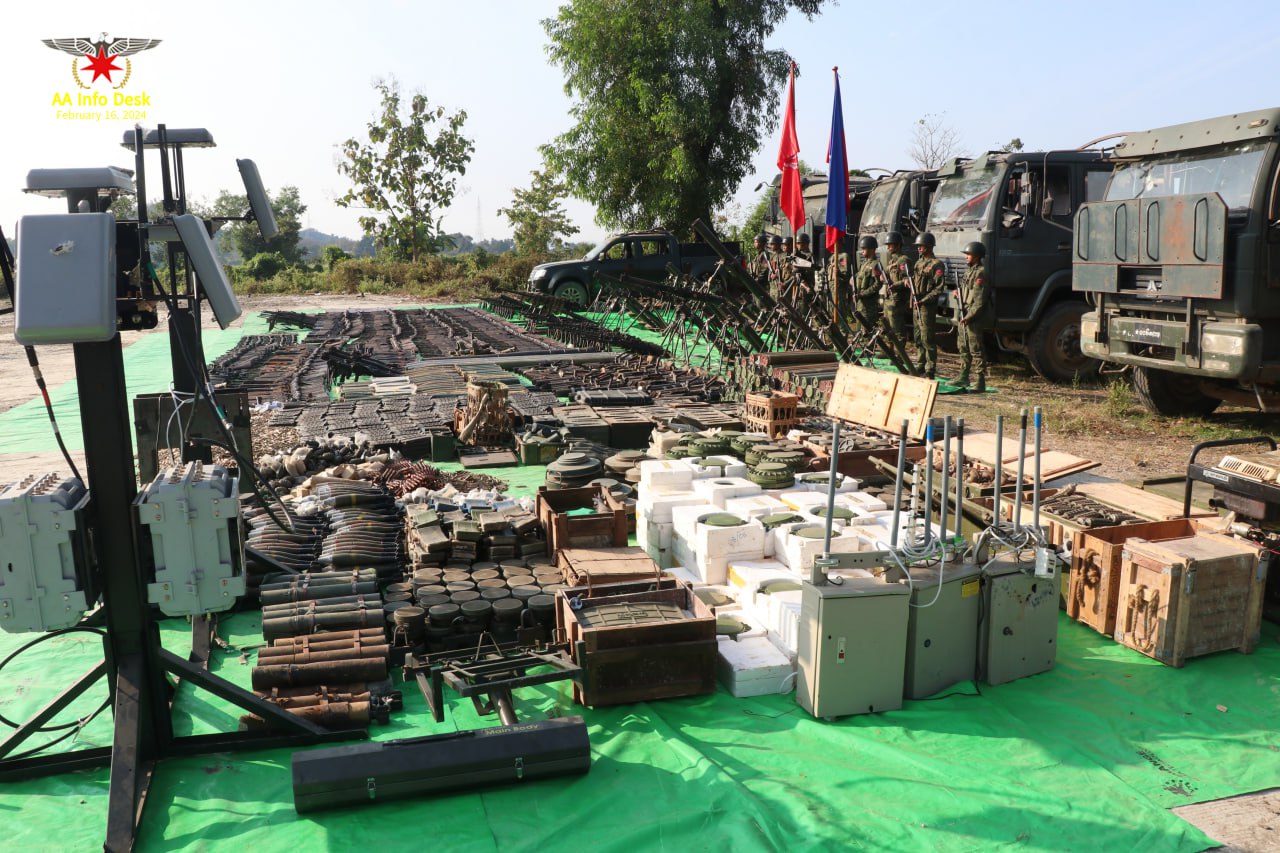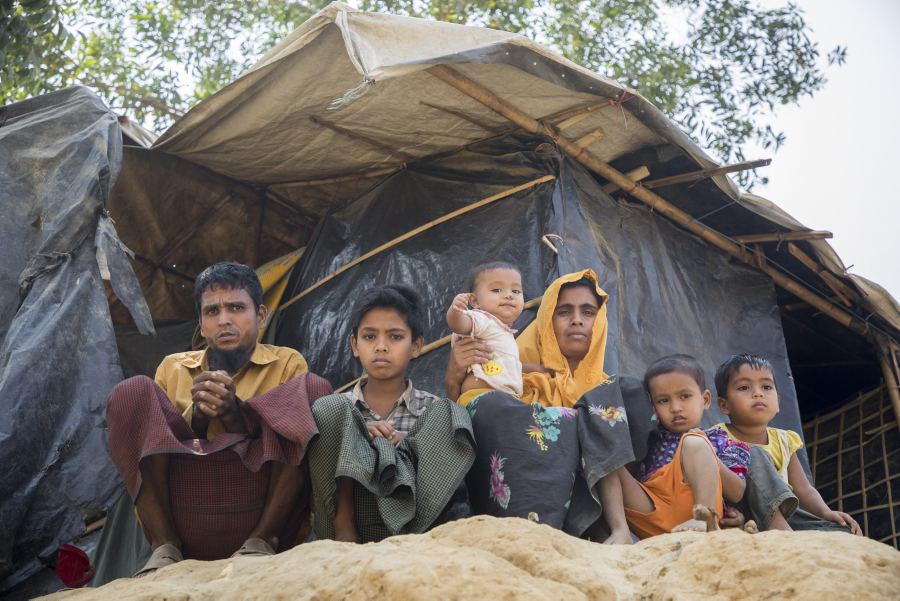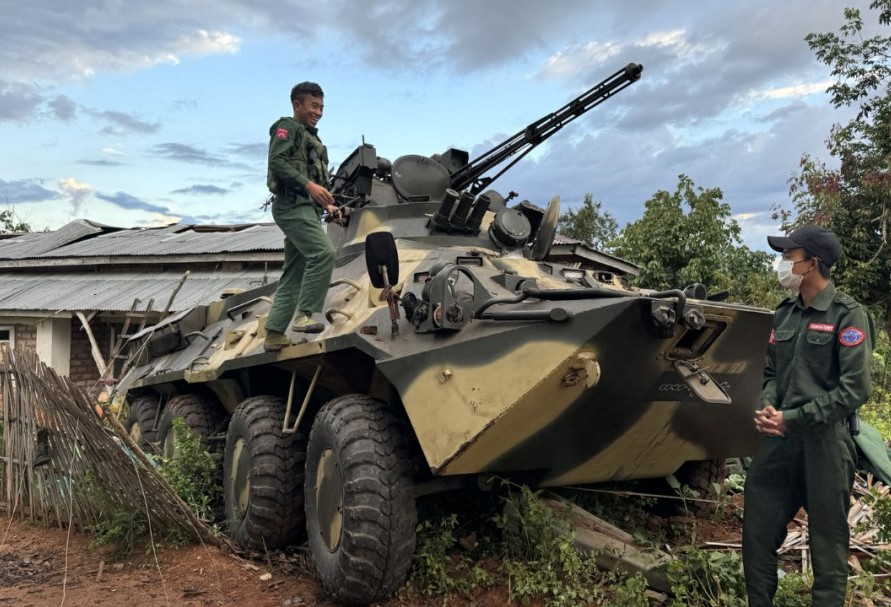- AA accuses Muslim organisations of weaponising term ‘genocide’
- Diarrhoea blamed for three deaths at Ponnagyun displacement camp
- Chin resistance groups seize Chin State town with AA’s help
- AA seizes pair of strategic military camps in Maungdaw Twsp
- Junta attacks kill 16 civilians, injure 69 in Arakan State in April
Passenger bus lines in Arakan State turn to packages over people to keep businesses afloat
Many express passenger buses in Arakan State have pivoted to transporting goods instead of people as the ongoing third wave of Covid-19 keeps traveller demand low and adds onerous restrictions for bus line operators.
21 Aug 2021
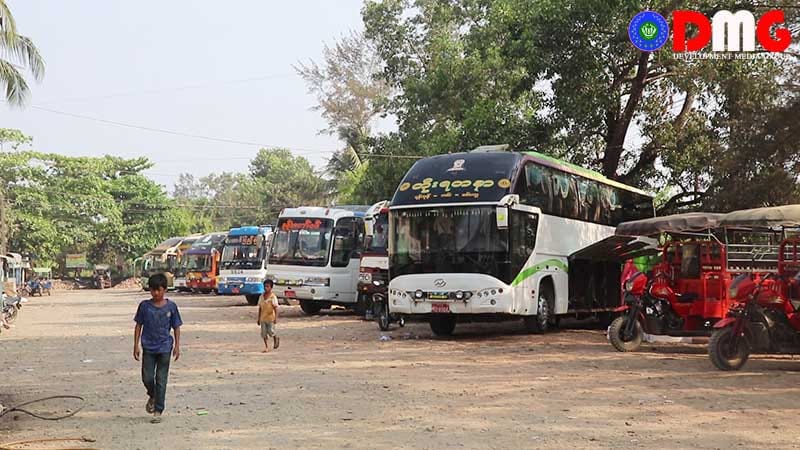
DMG Newsroom
21 August 2021, Sittwe
Many express passenger buses in Arakan State have pivoted to transporting goods instead of people as the ongoing third wave of Covid-19 keeps traveller demand low and adds onerous restrictions for bus line operators.
Currently there are few passengers, and most bus drivers prefer not to carry them anyway as buses are checked numerous times along their routes if they carry passengers, explained Ko Naing Naing, a warden of the Aung Sit Khaing passenger bus line that runs Sittwe-Yangon trips. So instead of people, bus companies are transporting cargo as they struggle to keep their businesses afloat, he added.
“We don’t get passengers during the Covid-19 period. And, there are many restrictions too. Bus drivers also dare not carry passengers as there are checks along the way,” Ko Naing Naing said.
“Although our bus line has six or seven buses, we have suspended services for about three buses, and have to run with only three or four buses. We’ve continued operating with just a few buses during the third wave of Covid-19 for the convenience of our employees and drivers,” he added.
Although the Shwe Pyi Thit bus line plying the Sittwe-Mandalay route ran up to 30 buses per month previously, the company now only runs about 10 buses monthly to carry goods between the two cities, said Ko Moe, a warden of the bus line.
“We normally ran one bus every day before, 30 buses a month. Now, only 10 buses run a month. So, the earnings of drivers and assistants have declined. Although we have faced difficulty due to declining commodity flows, we are coping with it as much as we can,” he said, adding that the company removed all passenger seats from some buses in its fleet in order to load more cargo with the current absence of passengers.
Ko Paing from the Aung Sit Khaing bus line said drivers like himself have also faced difficulties.
“As the virus continues to spread, we have faced livelihood difficulties. And it is impossible to remain without work. So, we have to work,” he said. “Buses carried passengers before but now carry goods instead. Carrying cargo on passenger buses has led to damages on the buses. It is the rainy season now and the routes are rough. We don’t get much in the way of earnings, but if we continue working, drivers and their assistants won’t lose their jobs.”
The relevant ministry has instructed passenger buses to abide by Covid-19 regulations concerning passenger transport, including requiring passengers to have a health certificate before allowing them to board, according to industry stakeholders.
Passenger bus lines operating in Arakan State have been loss-making amid the Covid-19 restrictions and reduced demand, leading some bus lines to suspend their services entirely.
And because buses must run in compliance with the Ministry of Health and Sports’ Covid-19 restrictions, fares have risen, according to the bus lines’ in-charges.


